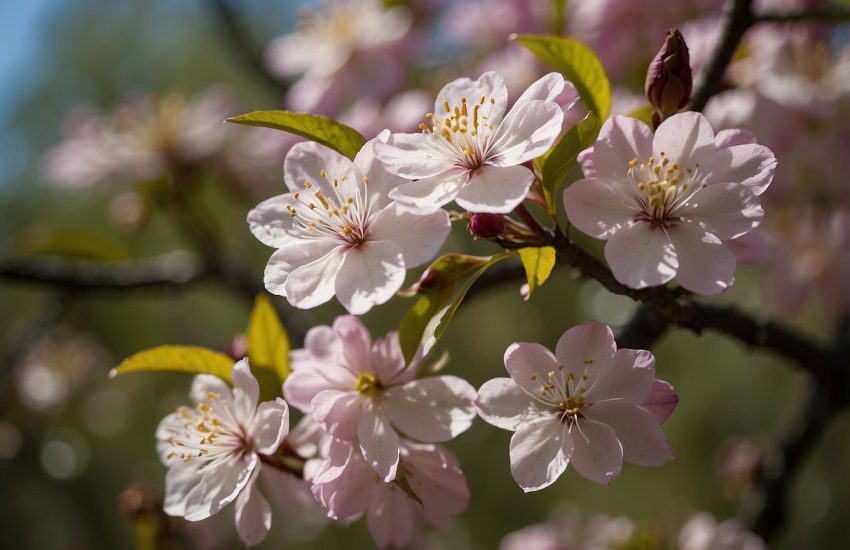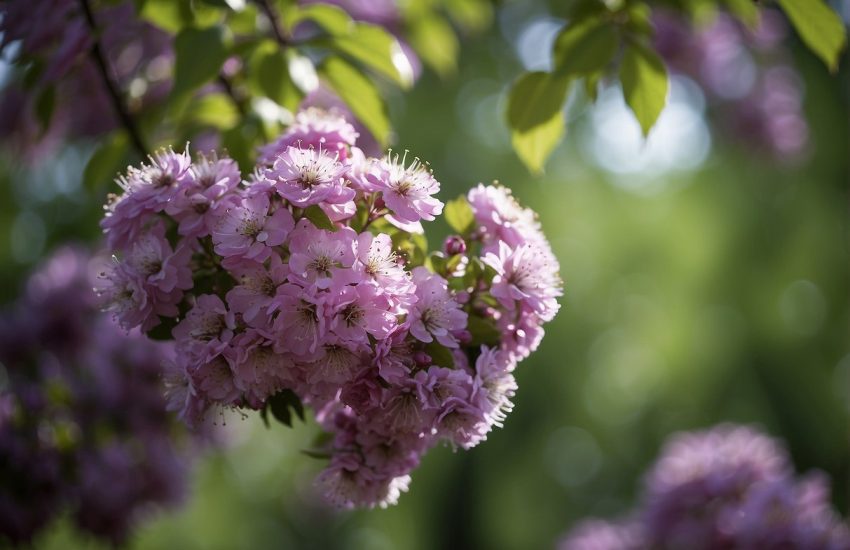Flowering Trees in Tennessee: A Guide to the Best Varieties for Your Garden
Last updated: March 1, 2026
Tennessee is known for its picturesque landscapes, and one of the most beautiful sights in the state is undoubtedly the flowering trees that bloom in the spring. These trees not only add an aesthetic value to the state’s landscape, but they also serve as a symbol of hope and renewal after the cold, dark winter months.

There are many different types of flowering trees that can be found in Tennessee, each with their own unique beauty. From the delicate pink blossoms of the dogwood tree to the vibrant pink and purple blooms of the redbud, these trees are truly a sight to behold. Many of these trees can be found in parks, gardens, and along the streets of cities and towns throughout the state, making them easily accessible for residents and visitors alike.
Whether you’re a nature lover or simply appreciate the beauty of the outdoors, Tennessee’s flowering trees are sure to leave a lasting impression. As spring approaches, take some time to explore the state’s natural beauty and discover the many different species of flowering trees that call Tennessee home.
Popular Flowering Trees in Tennessee
Tennessee is home to a variety of flowering trees that add color and beauty to the landscape. With so many options to choose from, it can be difficult to decide which trees are best suited for your yard. In this section, we’ll explore some of the most popular flowering trees in Tennessee.
Eastern Redbud and Dogwood Varieties
The Eastern Redbud and Flowering Dogwood are two of the most iconic trees in Tennessee. Both trees are deciduous and thrive in full sun to partial shade with well-drained soil. The Eastern Redbud produces stunning pink flowers in early spring before the leaves emerge. The Flowering Dogwood, specifically the Cornus Florida variety, produces beautiful white or pink flowers in early spring as well. The Cercis Canadensis variety of the Redbud is also a popular choice, with its heart-shaped leaves and pink flowers.
Magnolias and Their Majestic Blooms
Magnolias are another popular choice for Tennessee landscapes. The Southern Magnolia, or Magnolia Grandiflora, is a large evergreen tree that produces fragrant white flowers in the late spring and summer. The Star Magnolia, on the other hand, is a smaller deciduous tree that produces fragrant white or pink flowers in early spring. Both trees prefer partial shade and moist soil.
Unique Trees for Tennessee Landscapes
If you’re looking for something a little more unique, consider the Crape Myrtle, Tulip Tree, Kousa Dogwood, or Carolina Silverbell. The Crape Myrtle is a small to medium-sized deciduous tree that produces colorful blooms in shades of pink, red, white, and purple. The Tulip Tree, or Liriodendron Tulipifera, is a tall deciduous tree with large tulip-shaped flowers in the spring. The Kousa Dogwood is a small deciduous tree that produces white or pink flowers in late spring to early summer. The Carolina Silverbell is a small deciduous tree that produces fragrant white or pink flowers in the early spring. All of these trees prefer well-drained soil and partial shade.
In conclusion, there are many beautiful flowering trees to choose from in Tennessee. Whether you prefer the iconic Eastern Redbud and Flowering Dogwood or the unique Crape Myrtle and Tulip Tree, there is a tree that will thrive in your yard. Consider the tree’s preferred growing conditions, such as full sun or partial shade, moist or well-drained soil, and the size and shape of the tree, before making your final decision.
Caring for Tennessee’s Flowering Trees

Tennessee is home to a wide variety of beautiful flowering trees that can add a stunning touch to any landscape. However, in order to keep these trees healthy and thriving, it is important to provide them with proper care. Here are some tips for caring for Tennessee’s flowering trees.
Soil and Sunlight Requirements
Flowering trees in Tennessee generally prefer well-drained soils that are slightly acidic. They also require full sun or partial shade, depending on the species. It is important to research the specific needs of the tree you are planting to ensure that it is placed in the right location.
Seasonal Maintenance and Disease Prevention
Proper seasonal maintenance is crucial for the health of flowering trees in Tennessee. This includes regular pruning to remove dead or diseased branches, as well as mulching to retain moisture and prevent weeds. Fertilization should also be done in the early spring to provide the tree with the necessary nutrients.
In addition to regular maintenance, it is important to take steps to prevent diseases and pests. This can include using disease-resistant species, providing proper irrigation, and using natural pest control methods such as insecticidal soaps or neem oil.
Overall, by providing proper care and attention, Tennessee’s flowering trees can be a beautiful and resilient addition to any landscape.
![]() Looking for a nursery that carries native flowering trees in Tennessee?
Looking for a nursery that carries native flowering trees in Tennessee?
Browse our native plant nursery directory: Tennessee


